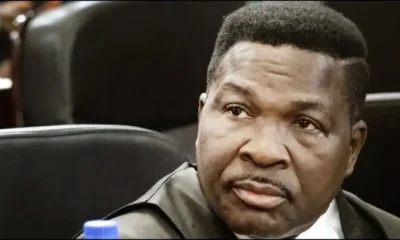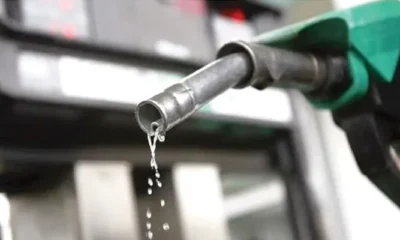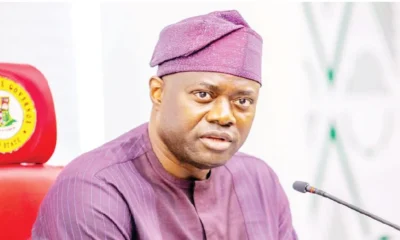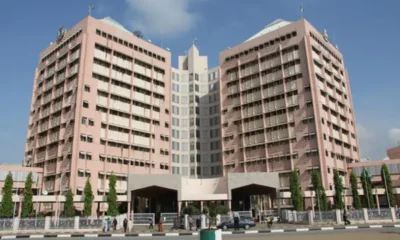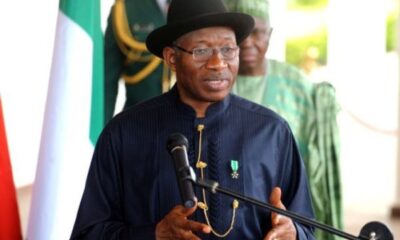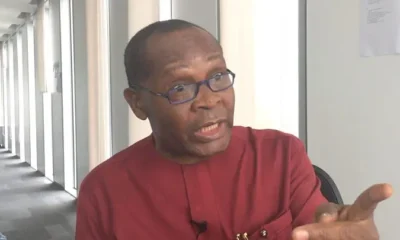Business
RAISING THE STAKES: How Dangote is using MRS to penetrate the Nigerian downstream oil sector
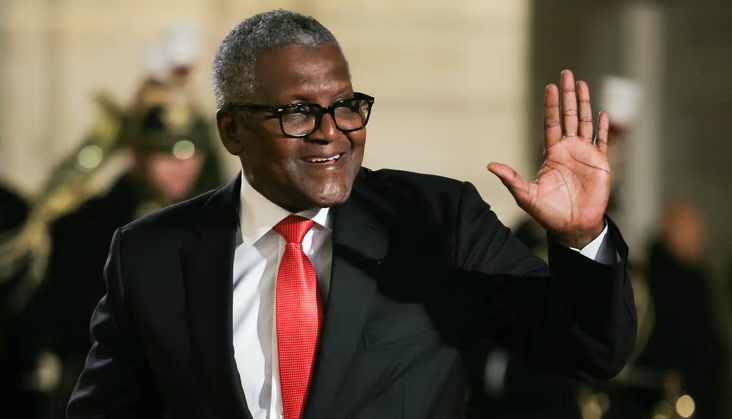
Oil marketing company MRS Africa Holdings, founded by Aliko Dangote’s half-brother Sayyu Dantata, became a major downstream player 16 years ago with its acquisition of Chevron’s fuel retail business, expanding into Cameroon, Benin, Togo and Côte d’Ivoire.
MRS Oil Nigeria – 60% owned by MRS Africa Holdings Limited, which also became the third major marketer to delist from the stock exchange after Mobil Oil and Ardova in August this year – was the first to strike a partnership with Dangote Petroleum Refinery to “guarantee stable product supply”.
“MRS is actually Dangote in another format,” Ademola Adigun, an oil and gas expert in Lagos, tells The Africa Report. “Dangote has already penetrated the downstream sector. MRS takes care of a substantial part of retailing of the products; all the CNG-powered trucks he brought in for fuel delivery were bought under MRS.”
Supply alliance and price war
Less than four months after the start of petrol production at Dangote refinery in September last year, a price war ensued after a series of increases in the cost of the fuel at the pump, with the two biggest suppliers, Dangote and the state-owned Nigerian National Petroleum Company (NNPC), calling the shots.
On 21 December, Dangote said it had signed a partnership with MRS Oil Nigeria for the sale of petrol at its retail outlets to ensure that the price reduction it announced two days earlier got to the end consumer.
Since then, the price war has intensified as more marketers, including Ardova, Heyden Petroleum, Optima Energy, Techno Oil and Hyde, joined forces with Dangote Petroleum Refinery through bulk purchase agreements.
To ensure compliance by its partners’ retail outlets nationwide, Dangote has had to publish prices at which its petrol must be sold at the pump.
Industry sources point out that MRS Oil captured a bigger share of the market in recent months, becoming second only to NNPC in terms of retail outlets and volume.
MRS now has over 800 stations. In fact, I won’t be surprised if they sell more petrol than NNPC…
It had 140 company-owned and 264 third party-owned outlets as of December, up from 81 and 97, respectively, a year earlier, according to data collated from its annual reports.
MRS Oil CEO Patrice Alberti said in the company’s 2024 annual report that its “strategic alliance” with the Dangote Refinery and market expansion initiatives have helped bridge its supply gap and reduced reliance on imports. He said the moves have also ensured “competitive pricing” and positioned the company for “sustained growth in the coming years”.
The company said the induction of major distributors and penetration into new markets had broadened its footprint, adding that it would invest in retail networks in 2025 to boost market presence.
“MRS now has over 800 stations. In fact, I won’t be surprised if they sell more petrol than NNPC sometimes. NNPC supplies Dangote with crude; so, they have more leverage than everybody else,” a source says, adding that MRS has expanded by means of franchises given to fuel stations owned and operated by dealers.
Last year, the national oil company’s stake in Dangote refinery dropped to 7.25% from 20% when it failed to pay the balance of the $2.76bn acquisition cost.
Expanding foothold with fuel delivery
On 15 September, Dangote spoke at a press conference to mark the first anniversary of petrol rollout from the refinery and the official presentation of CNG-powered trucks for fuel distribution, with MRS Holdings chairman Dantata sitting next to him.
Dantata was previously the director of Dangote Transport before he founded MRS in 1995, which started operations with MRS Transport Co. Ltd to bridge the gap in the haulage of petroleum products to end users, according to his company’s website.
In recent months, he has represented Dangote in several meetings with the government, marketers, and unions, more so with MRS playing a key role in the fuel delivery scheme that has raised the stakes and resulted in serious disputes in the downstream sector.
Dangote Petroleum Refinery announced in June that it would begin distributing fuel directly to retail stations, depots, manufacturers, and telecom companies using 4,000 trucks, with 15 August initially set as the kick-off date.
The company said it embarked on “a large-scale CNG-powered trucks rollout to boost our logistic strength and cost reductions across the distribution value chain”.
“Dangote does not have a licence to truck products, but MRS does. Normally, midstream is separate from the downstream because of the abuse in the industry, ever since the Rockefeller case,” says an industry lifer who asked not to be identified. “If it is true that it is MRS that is running his transport, then that is further proof that they are integrated.”
A Dangote spokesman declined to answer questions from The Africa Report about MRS’s role in the company’s fuel distribution initiative.
A struggle to change status quo
The oil industry comprises three main segments — upstream, midstream and downstream, and a company can only operate in one, according to the Petroleum Industry Act 2021, which says “a person intending to be involved in more than one stream… shall register and use a separate company for each stream of petroleum operations”.
Last week, Dangote addressed the question of whether his company intends to go into fuel retailing.
“No, we don’t want to go into retail,” he said, adding that if the company had wanted to do so, it would have bought Mobil Oil, Forte Oil and Oando Marketing, which were sold when the refinery was being built.
“But we didn’t want to be called a monopoly; that’s why we decided to restrict ourselves to production” with the expectation that the retailers “would become our customers, and we will have a very nice party together”, he said.
“If they are looking for a nice party, fine. But if they are looking for a fight, I have been fighting all my life. There is no business that I did that I didn’t fight,” Dangote said.
His remarks came amid the disputes with an oil and gas union as well as an association comprising fuel depot owners and marketers over his company’s foray into fuel distribution among other issues.
Before the giant Dangote Refinery came on stream last year, Nigeria wholly relied on imports to meet its fuel needs as the four government-owned refineries remained idle since 2019 when they were closed for repairs.
A month after the Dangote refinery started producing petrol, Dangote said marketers were still importing the product and not buying from his refinery.
“I am expecting that the NNPC Ltd and the marketers should stop importing,” he said in October, adding that the refinery had 500 million litres in its tanks. “The retailers should please come forward and pick … I’m not in the business of retail … We also don’t have trucks to send [products to them].” (The Africa Report)
-

 News16 hours ago
News16 hours agoFG Files Criminal Charges Against Ozekhome Over UK Property Saga
-

 Business16 hours ago
Business16 hours agoPetrol war: Importers outpace domestic refineries with 62% supply in 2025
-

 News16 hours ago
News16 hours agoN30bn relief: Oyo cries politics as HEDA drags Makinde to EFCC
-

 Business15 hours ago
Business15 hours agoMDAs Allocate Billions For Stationeries Despite Paperless Operation
-

 Politics14 hours ago
Politics14 hours ago‘Gear Up, Not Give Up’ Amidst Rivers State Turmoil – Jonathan Tells Fubara
-

 Opinion10 hours ago
Opinion10 hours agoPolitics behind failed impeachment attempt of Gov. Fubara
-

 Sports16 hours ago
Sports16 hours agoDrama as Senegal beat Morocco to claim AFCON title
-

 Politics15 hours ago
Politics15 hours ago‘We Don’t Want A Mole’ – Igbokwe Speaks On Atiku’s Son’s Move To APC



